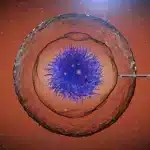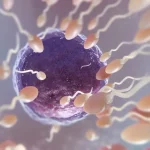
Introduction
After completing your IVF cycle with donor eggs, the next big decision is:
“How many embryos should we transfer?”
While transferring two embryos may seem like it could double your chances, the truth is more complex. In many cases, less is more—especially when it comes to maximizing safety and healthy outcomes.
This blog explores medical guidelines, pregnancy success rates, and the pros and cons of transferring one vs. two embryos during a donor egg IVF cycle.
Single Embryo Transfer (SET): Why It’s Often Recommended
Single embryo transfer has become the standard recommendation, especially with high-quality donor eggs and embryos.
Benefits of SET:
- Lower risk of twin pregnancy
- Reduced risk of premature birth, low birth weight, and cesarean section
- Similar live birth rates compared to double transfer
- Better health outcomes for both baby and parent
With donor eggs, embryos are typically strong and healthy, increasing the odds of success even with just one.
Double Embryo Transfer (DET): When Is It Considered?
In some cases, transferring two embryos may be considered if:
- The recipient is over 38
- There have been multiple failed IVF cycles
- The embryos are not PGT-tested or are lower quality
- There’s a strong desire for twins (with medical approval)
However, professional guidelines still urge caution—even if all embryos are high quality.
Success Rates: One vs. Two Embryos
| Transfer Type | Pregnancy Rate | Twin Rate | Complication Risk |
| Single Embryo | 55–65% | <3% | Lowest |
| Double Embryo | 65–75% | 30–40% | Higher risk |
With PGT-tested embryos, single embryo transfers can achieve live birth rates of 60–70%, matching or surpassing double transfers—without the added risks.
Medical Risks of Twin Pregnancy
Though some families dream of twins, carrying two embryos increases the risk of:
- Gestational diabetes
- Preeclampsia
- Cesarean delivery
- NICU stay for babies
- Emotional and financial stress
The American Society for Reproductive Medicine (ASRM) recommends SET for women under 35 using donor eggs, with a possible DET after careful discussion.
Emotional Considerations
Some parents may choose two embryos because:
- They want siblings close in age
- They feel it increases their “odds”
- They worry about limited embryos or cost
We understand these feelings, but we always recommend balancing hope with safety.
When Using a Surrogate
If you’re using a gestational surrogate:
- Her health, history, and comfort matter
- Most agencies and clinics limit transfers to one embryo
- The surrogate must agree to the risks of carrying twins
EggDonors4All provides legal and ethical oversight for all surrogate-involved embryo transfers.
Our Recommendation
We typically advise:
- SET for most recipients under 40 with high-quality embryos
- Consider DET only after physician review and clinical justification
- Use PGT-A testing to help select the best embryo for transfer
- Consider a frozen embryo transfer (FET) later if the first transfer fails
[Insert Image: Graphic showing SET vs. DET outcomes visually]
Alt text: Comparison chart of single vs. double embryo transfer success and risks
Real Parent Experiences
“We chose a single embryo, and it worked on the first try. Our baby girl is perfect.”
– Priya & Arjun, California
“We transferred two embryos hoping for twins. We did conceive twins—but it was a high-risk pregnancy, and they came 6 weeks early. Thankfully both are doing great.”
– Carla & James, New Jersey
“Our surrogate carried one embryo at a time. Both cycles worked, and our boys are 2 years apart.”
– Marta & Luis, Toronto
Conclusion
When it comes to embryo transfer with donor eggs, more doesn’t always mean better. Transferring one high-quality embryo offers excellent pregnancy rates with lower risk for both mother and baby.
At EggDonors4All, we work with your fertility team to create a transfer plan that’s safe, personalized, and focused on success.
📞 Want help planning your embryo transfer?
Call 1-212-661-7177 or email info@eggdonors4all.com to speak with our coordinator.
About the Author
Dr. Kulsoom Baloch
Dr. Baloch is a fertility specialist with decades of experience managing IVF cycles and embryo transfer strategies. She prioritizes safety, evidence-based care, and family-building success.

Dr. Kulsoom Baloch
Dr. Kulsoom Baloch is a dedicated donor coordinator at Indian Egg Donors, leveraging her extensive background in medicine and public health. She holds an MBBS from Ziauddin University, Pakistan, and an MPH from Hofstra University, New York. With three years of clinical experience at prominent hospitals in Karachi, Pakistan, Dr. Baloch has honed her skills in patient care and medical research.






Really enjoying this article! It reminded me how much I love a quick mental challenge – sometimes all you need is a classic! Been revisiting solitaire games lately, surprisingly accessible on any device. Great read!
Struggling with the lucky505login? Been there! Just make sure you’re using the right link. Here you go! lucky505login. Happy gaming!